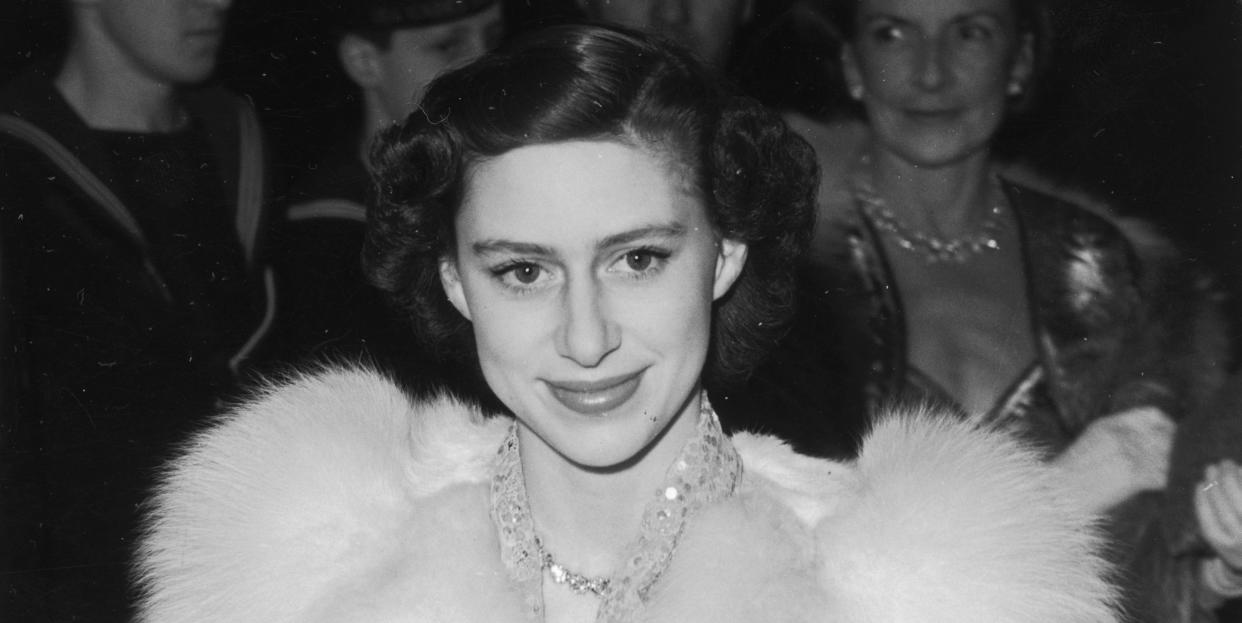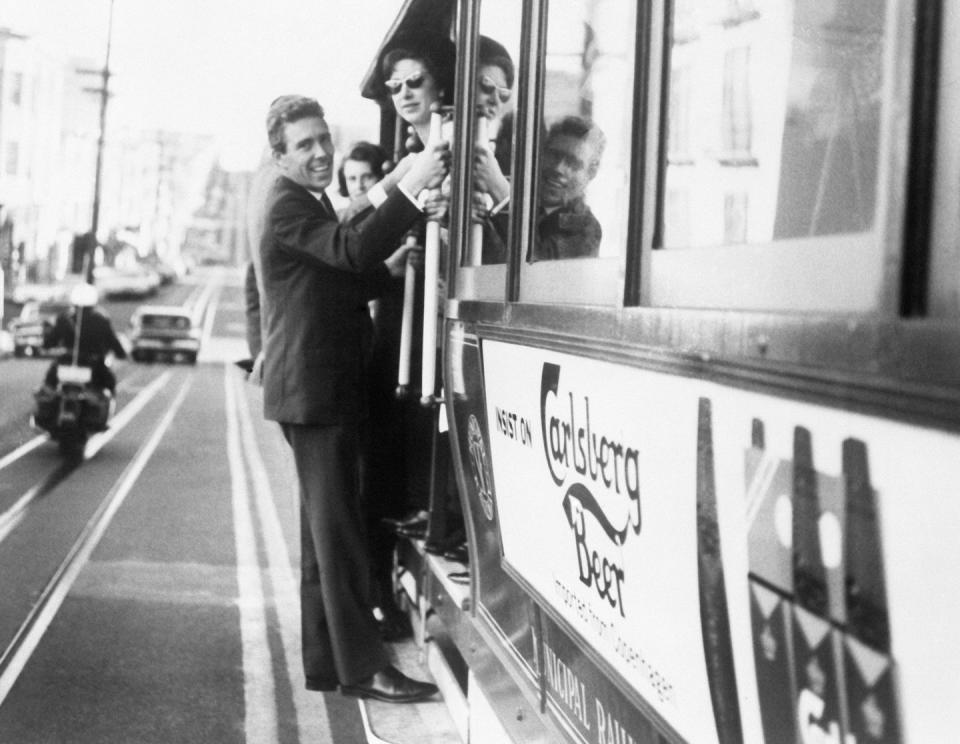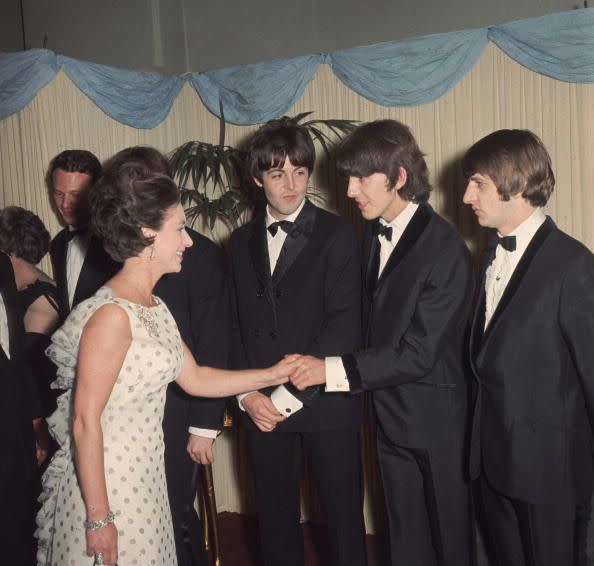How Princess Margaret Paved the Way for the Younger Generation of Royals

In many ways, there would be no Duchess Meghan had there not been a Princess Margaret. The new documentary Margaret: A Rebel Princess explores the Queen's late sister's life and loves as they coincided with changing social norms in Britain.
Ahead of part two of the series, airing on Sunday night on PBS, T&C spoke with executive producer Chris Granlund about the narrative of the film, and how Margaret paved the way for Prince Harry's marriage to Meghan Markle.
The series uses Princess Margaret and her life story to reflect the social changes in Britain over the 20th century. Tell me about why you all took that angle for the documentary.
We’re a documentary unit that tells the history of Britain or Europe or the world in lots of different ways, and Princess Margaret is quite an intriguing figuring within the royal family. At the beginning of the story, the royal family are kings, queens, and emperors, with a huge empire, and more power than they have today. They were very distant from the population, largely. Much of their private life was kept strictly secret, and the press and political institutions colluded to ensure that was the case.

And as Margaret grew up, and began to enter the world as an adult, huge social change was taking place: the democratization of Britain, the decline of empire, the meritocracy, a whole new way of thinking about the structure of society was taking place. And although Margaret was no political rebel in any dramatic sense, of all the members of the royal family, she was the one that touched elements of these things that were going on and entered the circles of the more radical thinking people.
This series has already aired in the UK, but it’s premiering for an American audience for the first time. Do you think the American reaction will be different?
It’s always fascinating to see how interested people in the United States are in the British royal family. I think, maybe people in the United States will know a little bit less about Princess Margaret to begin with. So, the basic level of knowledge will be different. But one of the stories that we tell in the series is the transition of monarchy from official institution to something that’s on a kind of celebrity level.

In many ways the United States led the way in that sense. The whole cult of celebrity is something that we very much associate with the United States, so I think it’s a story that you will probably understand very well, and will maybe find equally fascinating to see what is seen as a distant, old, dusty institution suddenly being brought into a more glamorous and modern celebrity world.
How do you think Margaret's life paved the way for the younger generation of modern royals?
Margaret fell in love with an older man who was married and had children, and worked for her father. Just by falling in love, she broke a number of taboos. The idea that a princess would marry outside the aristocracy, at that point, was beyond. People didn’t do that. The idea that a member of the royal family would marry someone who had been married to someone else was completely out of the question.
And of course, over the course of the 20th century, all of those obstacles that she overcame, or taboos that she broke, the rest of the royal family followed one way or another. We now have William and Kate, and this very familiar approach to them. Kate is not of the aristocracy, and that was taken for granted.

And then we have Meghan Markle, who is American, is a divorcee and so on. I think one of the interviewees in the film, Basil, the barman from Basil’s bar in Mustique, makes the point that Harry got an easy pass because of his great-aunt Margaret. She paved the way for the world that the royals occupy today.
The last time a British royal married an American divorcee it was Wallis Simpson, and that led to the abdication, which was a huge shadow that hung over Margaret’s childhood in many ways. It was the reason her father and mother were pushed into the limelight to become King and Queen. And I think the connection between Wallis Simpson and Meghan Markle has hardly been made at all. I think it’s not in people’s minds. With Meghan, it's more a sense of something very positive and modern and forward-looking that Harry is able to have this marriage and increase the connection of the royal family with the modern world.
Why do you think people are still so curious about Margaret?
What is it about Margaret? I think it’s the fact that she was able to maintain both the absolute expected image of a royal princess all through her life while also living in the modern age, even as it changed, moving with the times and engaging with a much wider circle of society than any previous royal had, and doing it in a very public way.

Part of that involved pulling the curtain back on the private lives of the royals. It’s not as powerful an institution as it was in the past, but symbolically it’s a very powerful institution, and we all have that curiosity.
We are still in the age of the tabloid. We’re also in the age of online news, with instant information. We expect to know all this stuff now, but Margaret was living through an age where people were just gradually moving into that world, and so she’s a fascinating modern figure.
Part two of Margaret: A Rebel Princess airs this Sunday, February 17, at 10 p.m. eastern on PBS. Watch a clip from part one, below:
('You Might Also Like',)
